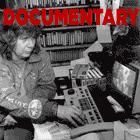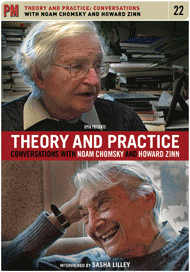More Rodney in store
From The Struggle Goes On, a speech by Walter Rodney:
There is no way out under the present system. So we have got to make up our minds what we are deciding now within the Working People's Alliance. It is not simply that the government 'do bad' and they must do better, it is not simply that they must do part good and part bad and they must remedy it. It is not that they must reform. It is not that they must hold another election and rig it all up. We 'finish' we all of that. THEY MUST GO! (Loud applause). THE P.N.C. MUST GO!(Loud applause and cheering). And they must go by any means necessary. (Loud cheering).
They have been accusing us of fermenting violence. They have even had the temerity to say that we are working up hit-lists - assassination lists in which the names of the Prime Minister and Hammy Green and so on appear. Someone who heard that was speaking to me the other day and said, "Well if all you really intend to to assassinate dem fellas, ah tell you something - you gat to join the queue." (Laughter). the guy was asserting his right. He was saying that people were standing up in line before us and that many Guyanese were standing in line. Their 'hit-list' then is ridiculous on many grounds and the people understand it to be ridiculous. We have said that we are not for assassination because politically and ideologically, an assassination is of no value to us. We do not want to replace one individual with another individual of the same type, whether it be for better or worse. I remember when the King Kong was ill, reportedly seriously ill. And many Guyanese, including Christian Guyanese, were praying for the best. (Laughter). And even in those days, we in the W.P.A. used to say that that would not solve any problems. We would not want to concentrate our analysis into thinking that if one man went, then the whole system would be cleaned up. What we wanted was to make the whole system go, and we repeat that now.
And we say further that we do not want those who have been responsible for crimes against Guyanese people assassinated; so if any of you brothers and sisters were thinking along these lines, we ask you to hold your hand because WE WANT THEM ALIVE!(Applause). The time has come when they will have to face the Guyanese people and be brought into account for the many years they thought they were beyond any kind of control on the part of the people. (Applause).
And there is another reason why assassination is not within our political textbook. And that is because assassination is the act of one man - any one man can assassinate a leader. But only the people can make a revolution! (Applause). And the day has to come when the real revolution will begin - the revolution in the economy, the revolution in the society, the revolution to bring us back to a level where we can hold our heads up high. And it is that day that we need the participation of the people. As for the assassination - we are not worried about that. That is something that they are inventing because they have plans for assassination; because they have not only the Rabbi's squad as their death squad, but they have the assassins that they have been training at Low Creek. They have been training them to be snipers, training them to come amongst people with silent weapons while they guard the kingdom of the real assassins. These have been produced by the P.N.C. government - produced by the clique in power, because it is necessary for them to find some excuse in order for them to carry out their orders and their plans.
So soon more Rodney will be up because I was able to get a couple good copies of several of his way out of print speeches: "People's Power, No Dictator," "The Struggle Goes On," and "A Sign Of The Times." All three will hopefully be up soon, but it takes awhile to type so much. We still haven't gotten a copy of READiris pro. Oh, and despite the counter, we got ten thousand hits this month. Best month yet.
There is no way out under the present system. So we have got to make up our minds what we are deciding now within the Working People's Alliance. It is not simply that the government 'do bad' and they must do better, it is not simply that they must do part good and part bad and they must remedy it. It is not that they must reform. It is not that they must hold another election and rig it all up. We 'finish' we all of that. THEY MUST GO! (Loud applause). THE P.N.C. MUST GO!(Loud applause and cheering). And they must go by any means necessary. (Loud cheering).
They have been accusing us of fermenting violence. They have even had the temerity to say that we are working up hit-lists - assassination lists in which the names of the Prime Minister and Hammy Green and so on appear. Someone who heard that was speaking to me the other day and said, "Well if all you really intend to to assassinate dem fellas, ah tell you something - you gat to join the queue." (Laughter). the guy was asserting his right. He was saying that people were standing up in line before us and that many Guyanese were standing in line. Their 'hit-list' then is ridiculous on many grounds and the people understand it to be ridiculous. We have said that we are not for assassination because politically and ideologically, an assassination is of no value to us. We do not want to replace one individual with another individual of the same type, whether it be for better or worse. I remember when the King Kong was ill, reportedly seriously ill. And many Guyanese, including Christian Guyanese, were praying for the best. (Laughter). And even in those days, we in the W.P.A. used to say that that would not solve any problems. We would not want to concentrate our analysis into thinking that if one man went, then the whole system would be cleaned up. What we wanted was to make the whole system go, and we repeat that now.
And we say further that we do not want those who have been responsible for crimes against Guyanese people assassinated; so if any of you brothers and sisters were thinking along these lines, we ask you to hold your hand because WE WANT THEM ALIVE!(Applause). The time has come when they will have to face the Guyanese people and be brought into account for the many years they thought they were beyond any kind of control on the part of the people. (Applause).
And there is another reason why assassination is not within our political textbook. And that is because assassination is the act of one man - any one man can assassinate a leader. But only the people can make a revolution! (Applause). And the day has to come when the real revolution will begin - the revolution in the economy, the revolution in the society, the revolution to bring us back to a level where we can hold our heads up high. And it is that day that we need the participation of the people. As for the assassination - we are not worried about that. That is something that they are inventing because they have plans for assassination; because they have not only the Rabbi's squad as their death squad, but they have the assassins that they have been training at Low Creek. They have been training them to be snipers, training them to come amongst people with silent weapons while they guard the kingdom of the real assassins. These have been produced by the P.N.C. government - produced by the clique in power, because it is necessary for them to find some excuse in order for them to carry out their orders and their plans.
So soon more Rodney will be up because I was able to get a couple good copies of several of his way out of print speeches: "People's Power, No Dictator," "The Struggle Goes On," and "A Sign Of The Times." All three will hopefully be up soon, but it takes awhile to type so much. We still haven't gotten a copy of READiris pro. Oh, and despite the counter, we got ten thousand hits this month. Best month yet.





